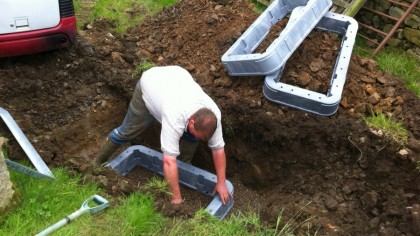Does the UK need high-speed rail or high-speed internet?
Broadband vs HS2
HS2 gets funding priority
"HS2 is a once in a generation opportunity to create jobs and develop skills, provide the extra space we need on our rail network for commuters and freight and better connect our northern and midland cities."
There you have it, neither a confirmation nor denial of a plan to lay fibre optic cable next to HS2 track. From that statement, it would appear that both are a priority to the government. But that the £1 billion investment, whilst a huge amount of money, is nowhere near the £43 billion spent on HS2. Clearly it considers HS2 as more of a priority.
There's also the issue of the government classifying "super-fast broadband" as 22mbps. That's more super-average than super-fast. In places like Hong Kong, a gigabit both ways is standard. In fact, in much of Asia, internet speeds are significantly faster than the UK and Europe. It's chasing average speeds by trying to rollout out fibre to the cabinet (FTTC) when it should be far more ambitious.
The government may protest that this is not an 'either /or' situation, but the very importance of rail and broadband infrastructure to the UK, and the government's failure to tackle both with an equal amount of bullishness, has created the very same either / or situation it is adamant doesn't exist.
The critics of HS2 and supporters of a massive government-led fibre rollout could pack out a Class 221 Super Voyager, whereas the pro-HS2 camp might occupy a couple of seats in first class. When I put out a request for comment from either side on this issue, a number of commentators jumped at the chance to speak in favour of a fibre optic rollout, and only one on the pro-HS2 side - Go HS2. Who ultimately failed to respond to my questions.

Public unconvinced
The public, too, seems to have turned sour on high-speed rail. A recent survey by the Institute of Technology and Engineering found that 43% of people surveyed saw more economic benefit in extending fibre-optic broadband to every home in the country, than building nuclear power plants (32%), airports (17%) and HS2 (16%).
Boris Ivanovic, Chairman of Hyperoptic, explained to me how both short and long term benefits of HS2 are outweighed by the country's need for fibre to the home (FTTH): "I believe that the short-term benefits for HS2 and FTTH are similar – both would create immediate employment opportunities to build the infrastructure.
Sign up to the TechRadar Pro newsletter to get all the top news, opinion, features and guidance your business needs to succeed!
"But long term I believe that FTTH would have greater economic benefit – the UK is the most internet-based major economy of the G20, as such it's likely more businesses will be built upon broadband than on a train line.
"Technology is evolving all the time and is driving our economy. When we launched Be in 2005 people questioned why you needed 24Mbps, now that speed is the norm. Giving people gigabit speeds via fibre-to-the-home future-proofs businesses and consumers for the new wave of products and services that will continue to transform our lives."
Where does this leave us? It seems that technologists, the public and the media favour faster internet. However politicians and campaign groups want HS2. As Professor Cochrane said earlier, we shouldn't be in an either or situation. But a lack of strategic thinking, foresight and fear of anything technical has made it into one. The country needs both, but we're getting a very costly one-and-a-half.
- 1
- 2
Current page: Has the government got its priorities right?
Prev Page Billions of pounds of investment at stake